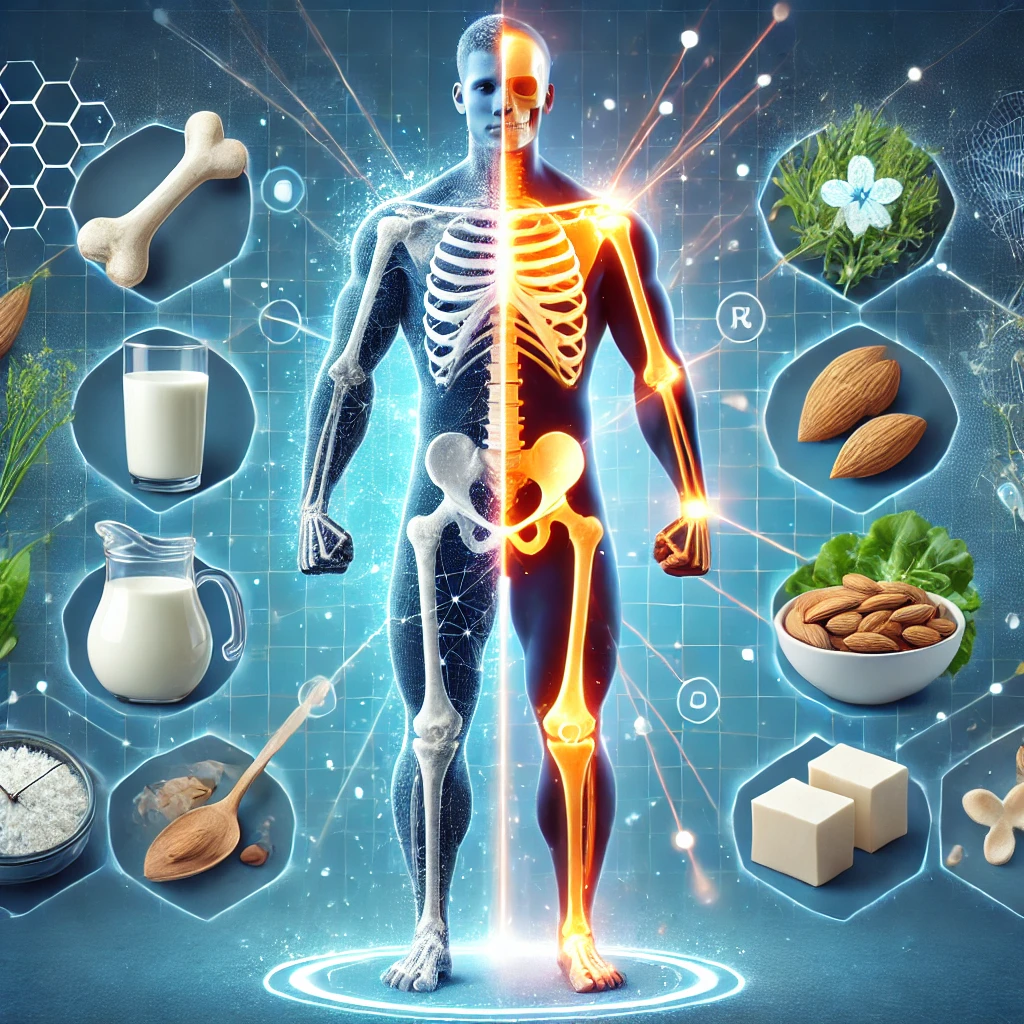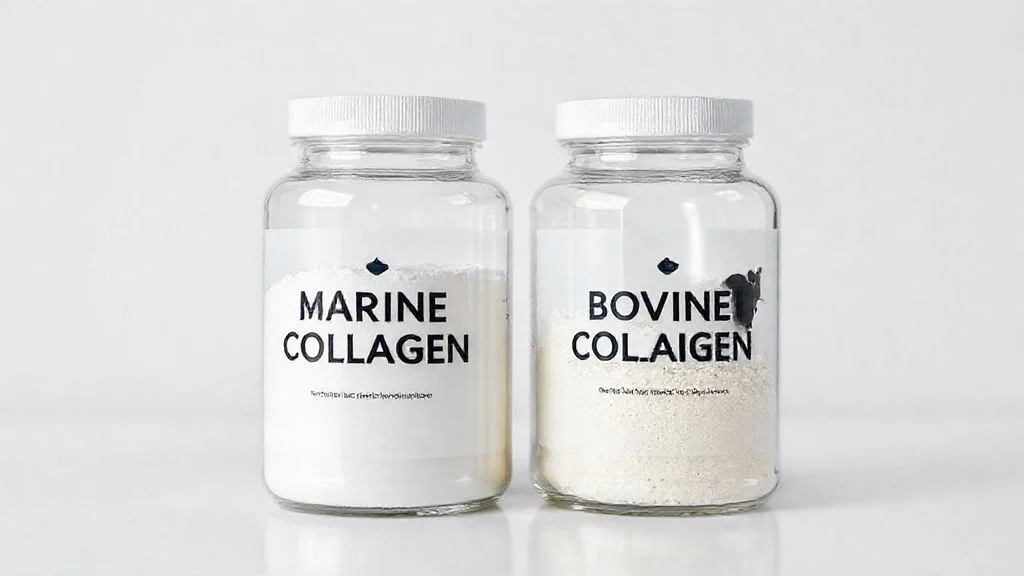Are you tired of starting your day feeling sluggish, only to battle joint pain and energy crashes by mid-morning? You’re not alone. Millions of health-conscious individuals and athletes struggle to find anti-inflammatory high protein breakfast recipes that are both delicious and genuinely healing.
The challenge isn’t just about eating healthy—it’s about finding meals that reduce chronic inflammation while providing enough protein for muscle recovery, sustained energy, and long-term wellness. The good news? You don’t need complicated ingredients or hours in the kitchen.
These 7 proven anti inflammatory breakfast recipes combine powerful healing foods with 25-35 grams of protein per serving, helping you fight inflammation from your very first meal. In this guide, you’ll discover easy-to-make, science-backed breakfast ideas that taste amazing and deliver real results.
Why Anti-Inflammatory High-Protein Breakfasts Matter for Your Health
Starting your day with the right foods sets the tone for everything that follows. When you combine anti-inflammatory ingredients with adequate protein, you’re giving your body exactly what it needs to combat chronic inflammation and maintain optimal energy.
Chronic inflammation isn’t just uncomfortable—it’s linked to serious health issues including joint pain, digestive problems, cardiovascular disease, and slower muscle recovery. Research shows that dietary choices play a crucial role in either fueling or fighting this inflammation.
Here’s why protein matters so much at breakfast:
- Stabilizes blood sugar levels: Protein prevents the inflammatory blood sugar spikes that come from carb-heavy breakfasts, keeping your energy steady throughout the morning
- Supports muscle recovery: Getting 25-30 grams of protein at breakfast helps repair muscle tissue and prevents age-related muscle loss, especially important for athletes and active individuals
- Reduces inflammatory markers: Studies demonstrate that adequate protein intake combined with anti-inflammatory foods can significantly lower C-reactive protein (CRP) and other inflammatory biomarkers in the body
- Enhances satiety: High-protein breakfasts increase feelings of fullness by 60% compared to low-protein options, reducing the temptation to snack on inflammatory processed foods
- Boosts metabolism: Protein requires more energy to digest than carbohydrates or fats, increasing your metabolic rate by up to 30% through a process called thermogenesis
The sweet spot? Aiming for 25-30 grams of protein at breakfast. Research from the University of Arkansas confirms this threshold is necessary to fully experience protein’s health benefits, including improved muscle synthesis and better appetite control throughout the day.
When you pair this protein with anti-inflammatory powerhouses like omega-3 fatty acids, antioxidant-rich berries, and dark leafy greens, you create synergistic healing effects that go far beyond basic nutrition.
7 Proven Anti-Inflammatory High-Protein Breakfast Recipes
Each of these anti inflammatory breakfast recipes contains 25-35 grams of protein and is packed with foods scientifically proven to reduce inflammation. Whether you prefer sweet or savory, there’s an option that fits your taste and lifestyle.
1. Greek Yogurt Power Bowl with Berries and Seeds
Protein Content: 30 grams | Prep Time: 5 minutes
This vibrant bowl is one of the easiest high protein anti inflammatory breakfast options you can make. Greek yogurt provides probiotics that support gut health, which research links directly to reduced systemic inflammation.
Ingredients:
- 1.5 cups plain Greek yogurt (unsweetened)
- 1/2 cup mixed berries (blueberries, strawberries, raspberries)
- 2 tbsp chia seeds
- 1/4 cup walnuts, chopped
- 1 tbsp raw honey (optional)
- Sprinkle of cinnamon
Why it works: The probiotics in Greek yogurt help balance your gut microbiome, which plays a crucial role in regulating inflammation throughout your body. Berries are loaded with anthocyanins—powerful antioxidants that combat free radicals and oxidative stress. Chia seeds and walnuts deliver plant-based omega-3 fatty acids (ALA) that research shows can reduce inflammatory markers like IL-6 and TNF-α.
Pro tip: Choose full-fat Greek yogurt over low-fat versions. The healthy fats improve satiety and help your body absorb fat-soluble vitamins A, D, E, and K from the berries.
2. Vegetable-Loaded Egg Scramble with Turmeric
Protein Content: 28 grams | Prep Time: 10 minutes
Eggs are nutritional powerhouses that provide complete protein containing all nine essential amino acids your body needs. This scramble takes it further by adding turmeric, one of nature’s most potent anti-inflammatory compounds.
Ingredients:
- 3 whole eggs + 1 egg white
- 2 cups fresh spinach
- 1/2 cup diced bell peppers (red or yellow)
- 1/4 tsp turmeric powder
- 1 tbsp extra virgin olive oil
- Pinch of black pepper
- Side of whole grain toast (optional)
Why it works: Eggs contain vitamin D, which research from a 2016 review found can limit inflammatory processes through its effects on the immune system. Turmeric contains curcumin, a bioactive compound that studies demonstrate helps manage oxidative stress and inflammatory conditions. The vegetables add fiber and phytonutrients that further support anti-inflammatory pathways.
Pro tip: Always add black pepper when using turmeric. The piperine in black pepper increases curcumin absorption by up to 2,000%, making this combination incredibly effective for reducing inflammation.
3. Smoked Salmon Avocado Toast on Whole Grain
Protein Content: 26 grams | Prep Time: 5 minutes
This trendy breakfast isn’t just Instagram-worthy—it’s a scientifically-backed anti-inflammatory powerhouse. Wild-caught salmon contains the highest concentration of omega-3 fatty acids EPA and DHA, which research published in Biochemical Society Transactions confirms have potent anti-inflammatory properties.
Ingredients:
- 3 oz smoked wild salmon
- 1/2 ripe avocado, mashed
- 2 slices sprouted grain bread, toasted
- Fresh dill and capers
- Squeeze of lemon juice
- Everything bagel seasoning (optional)
Why it works: The omega-3s in salmon give rise to resolvins and protectins—specialized molecules that actively resolve inflammation and promote tissue healing. Avocado provides monounsaturated fatty acids that studies link to reduced inflammatory markers. The combination delivers heart-healthy fats that also support cardiovascular health and may help stabilize advanced atherosclerotic plaques.
Pro tip: Wild-caught salmon contains significantly more omega-3 fatty acids than farmed varieties. Look for Alaskan or Pacific salmon for the best anti-inflammatory benefits.
4. High-Protein Anti-Inflammatory Smoothie Bowl
Protein Content: 32 grams | Prep Time: 7 minutes
When you’re short on time, this smoothie bowl delivers maximum nutrition with minimal effort. It’s one of the most versatile anti inflammatory breakfast smoothie options, easily customizable to your taste preferences.
Ingredients:
- 1 scoop vanilla protein powder (whey or plant-based)
- 1 cup fresh spinach
- 1 cup frozen mixed berries
- 1 tbsp ground flaxseed
- 1 tbsp almond butter
- 1 cup unsweetened almond milk
- Toppings: sliced banana, hemp seeds, coconut flakes
Why it works: Leafy greens like spinach contain chlorophyll and antioxidants that sweep up harmful free radicals. Berries provide anthocyanins that research shows can improve blood pressure and glycemic management. Flaxseed adds lignans and alpha-linolenic acid (ALA), while almond butter contributes vitamin E—all working together to create a comprehensive anti-inflammatory effect.
Pro tip: A 2021 study suggests our bodies better absorb the antioxidant lutein from spinach when it’s liquified in smoothies, making this preparation method especially beneficial for maximizing nutrient uptake.
5. Cottage Cheese and Berry Protein Pancakes
Protein Content: 27 grams | Prep Time: 15 minutes
Who says anti inflammatory breakfast ideas can’t be indulgent? These fluffy pancakes prove that healing foods can taste incredible while delivering serious nutritional benefits.
Ingredients:
- 1 cup low-fat cottage cheese
- 1/2 cup rolled oats
- 2 whole eggs
- 1/2 tsp cinnamon
- 1/2 cup fresh blueberries
- Coconut oil for cooking
Why it works: Cottage cheese is a complete protein with impressive anti-inflammatory properties. The fermented dairy contains probiotics that help quell inflammation in the gut. Oats provide beta-glucan fiber that supports healthy gut bacteria and helps regulate blood sugar. Cinnamon contains compounds that research shows can improve glucose control and reduce inflammatory markers.
Pro tip: Blend the batter until completely smooth for fluffier, more traditional-textured pancakes. The blending also makes the cottage cheese curds disappear, perfect for picky eaters.
6. Tofu Scramble with Vegetables (Plant-Based Option)
Protein Content: 25 grams | Prep Time: 12 minutes
Plant-based eaters rejoice! This vegan-friendly option proves you don’t need animal products to create a powerful anti inflammatory high protein breakfast.
Ingredients:
- 8 oz firm tofu, crumbled
- 1 cup chopped kale
- 1/2 cup sliced mushrooms
- 1/4 tsp turmeric powder
- 2 tbsp nutritional yeast
- 1 clove garlic, minced
- 1 tbsp extra virgin olive oil
Why it works: Tofu provides isoflavones—plant compounds with demonstrated anti-inflammatory properties. Mushrooms offer anti-inflammatory beta-glucans, while garlic contains allicin, a sulfur compound with powerful immune-modulating effects. Nutritional yeast adds B vitamins that support cellular metabolism and energy production.
Pro tip: Press your tofu for 10 minutes before cooking to remove excess water. This creates better texture and allows the tofu to absorb more of the flavorful turmeric and garlic.
7. Protein-Packed Chia Pudding with Nuts and Seeds
Protein Content: 28 grams | Prep Time: 5 minutes active (overnight soak)
This make-ahead option is perfect for busy mornings when you need an easy anti inflammatory breakfast that’s ready to grab and go. Prepare several servings on Sunday for the entire week.
Ingredients:
- 3 tbsp chia seeds
- 1 scoop vanilla protein powder
- 1 cup unsweetened almond milk
- 1 tbsp almond butter
- Toppings: 2 tbsp walnuts, 1 tbsp pumpkin seeds, fresh berries
Why it works: Chia seeds are nutrition powerhouses containing omega-3 ALA, fiber, and protein that work synergistically to reduce inflammation. When soaked, they create a satisfying gel-like texture that keeps you full for hours. Nuts and seeds provide polyphenols and healthy fats that research links to improved inflammatory markers and cardiovascular health.
Pro tip: Make 3-4 servings at once in mason jars for a week’s worth of anti inflammatory breakfast meal prep. They’ll stay fresh in the refrigerator for up to 5 days.
Key Ingredients for Anti-Inflammatory Breakfast Success
Understanding which foods fight inflammation helps you make smarter choices every morning. Here’s your quick reference guide for stocking an anti-inflammatory kitchen.
Top Anti-Inflammatory Breakfast Proteins
| Protein Source | Protein per Serving | Key Anti-Inflammatory Benefit |
|---|---|---|
| Greek Yogurt (1 cup) | 20g | Probiotics support gut health and reduce systemic inflammation |
| Eggs (3 large) | 18g | Vitamin D and choline; stabilizes blood sugar |
| Wild Salmon (3 oz) | 21g | Omega-3 EPA/DHA produces resolvins that resolve inflammation |
| Cottage Cheese (1 cup) | 28g | Fermented dairy with probiotics; complete protein |
| Tofu (8 oz) | 20g | Isoflavones with anti-inflammatory properties |
| Protein Powder (1 scoop) | 20-25g | Convenient, versatile, supports muscle recovery |
Anti-Inflammatory Superfoods to Add Daily
Incorporate these healing foods into your morning routine for maximum anti-inflammatory benefits:
- Berries: Blueberries, strawberries, and raspberries are packed with anthocyanins and other antioxidants that research shows can reduce inflammatory biomarkers and improve cardiovascular health
- Leafy Greens: Spinach, kale, and Swiss chard contain vitamins K and C, plus anti-inflammatory compounds that sweep up harmful free radicals
- Omega-3 Sources: Wild salmon, chia seeds, flaxseeds, and walnuts provide essential fatty acids that produce inflammation-resolving molecules called resolvins and protectins
- Healthy Fats: Avocado, extra virgin olive oil, and nuts deliver monounsaturated fats that studies link to reduced inflammatory markers and improved heart health
- Anti-Inflammatory Spices: Turmeric (curcumin), cinnamon, and ginger contain powerful bioactive compounds that modulate inflammatory pathways at the cellular level
Common Mistakes to Avoid with Anti-Inflammatory Breakfasts
Even with the best intentions, these pitfalls can sabotage your anti-inflammatory efforts.
Choosing Flavored Yogurt Over Plain: Those fruity yogurts seem healthy, but they’re loaded with added sugars that trigger inflammatory blood sugar spikes. A single serving can contain 20+ grams of sugar—as much as a candy bar. Always choose plain Greek yogurt and add your own fresh fruit for natural sweetness without the inflammatory effect.
Not Getting Enough Protein: Skimping on protein means you’re missing out on satiety benefits and muscle support. If your breakfast contains less than 20 grams of protein, you’ll likely experience mid-morning hunger and energy crashes. Aim for that 25-30 gram sweet spot to stabilize blood sugar and reduce inflammation.
Relying on Processed “Healthy” Foods: Protein bars, instant oatmeal packets, and flavored protein shakes often contain inflammatory vegetable oils, artificial sweeteners, and preservatives. Reading ingredient labels is crucial—if you can’t pronounce it, your body probably can’t process it well. Choose whole foods whenever possible.
Skipping Healthy Fats: Fat-free products might seem like the healthier choice, but healthy fats are essential for fighting inflammation. Fats help your body absorb anti-inflammatory vitamins A, D, E, and K. They also increase satiety and stabilize blood sugar. Don’t fear foods like avocado, nuts, seeds, and olive oil—they’re your anti-inflammatory allies.
Ignoring Meal Prep: Without preparation, busy mornings lead to inflammatory convenience foods. Dedicate 30 minutes on Sunday to prep ingredients: hard-boil eggs, portion out nuts and berries, prepare overnight oats, or make a batch of chia pudding. Your future self will thank you when healthy breakfasts are grab-and-go ready.
Frequently Asked Questions
What is an anti-inflammatory high-protein breakfast?
An anti-inflammatory high-protein breakfast is a meal designed to provide substantial protein (typically 25-30 grams) while incorporating foods scientifically proven to reduce inflammation in the body. These breakfasts combine complete protein sources like eggs, Greek yogurt, or wild salmon with anti-inflammatory ingredients such as berries, leafy greens, nuts, seeds, and healthy fats like avocado and olive oil. The goal is to stabilize blood sugar, support muscle recovery, and combat chronic inflammation—all from your first meal of the day.
What are some examples of anti-inflammatory high-protein breakfast foods?
Excellent examples include Greek yogurt topped with berries and seeds, vegetable-loaded egg scrambles with turmeric, smoked wild salmon on whole grain toast, smoothie bowls made with leafy greens, protein powder, and berries, cottage cheese pancakes with cinnamon and blueberries, tofu scramble with kale and mushrooms, and overnight chia pudding with nuts. Each combines complete proteins with anti-inflammatory compounds like omega-3 fatty acids, antioxidants, and polyphenols.
How much protein should be in an anti-inflammatory breakfast?
Aiming for 25-30 grams of protein is ideal for supporting muscle repair, hormone balance, and metabolic health while combating inflammation. Research demonstrates that this threshold helps stabilize blood sugar levels throughout the morning, prevents inflammatory blood sugar spikes, and promotes better satiety. This amount also reduces the temptation to snack on inflammatory processed foods and supports lean muscle maintenance, especially important as we age.
Why are eggs recommended for anti-inflammatory breakfasts?
Eggs are nutritional powerhouses for anti inflammatory diet breakfast plans. They’re a complete protein source containing all nine essential amino acids your body needs. Eggs also provide choline for brain health and vitamins A and D that support immune function. Research shows vitamin D can limit inflammatory processes through its effects on the immune system. Eggs help stabilize blood sugar and provide lasting energy without causing the inflammatory blood sugar spikes associated with high-carbohydrate breakfast options. They’re also incredibly versatile and budget-friendly.
Can anti-inflammatory breakfasts support healthy aging?
Absolutely. Research demonstrates that diets rich in anti-inflammatory foods combined with adequate protein can help maintain lean muscle mass, reduce chronic inflammation, support cardiovascular health, and promote long-term wellness. As we age, maintaining muscle mass becomes crucial for metabolic health, mobility, and independence. The combination of 25-30 grams of protein with anti-inflammatory nutrients like omega-3s and antioxidants makes high-protein anti-inflammatory breakfasts an essential strategy for healthy aging and disease prevention.
Are plant-based proteins effective for anti-inflammatory breakfasts?
Yes! Plant-based proteins like tofu, tempeh, lentils, beans, and high-quality protein powders combined with anti-inflammatory vegetables and healthy fats provide excellent breakfast options with powerful anti-inflammatory benefits. Tofu contains isoflavones that have demonstrated anti-inflammatory properties. The key is combining complementary plant proteins to ensure you’re getting all essential amino acids. For example, pairing beans with whole grains or adding nuts to your smoothie creates complete protein profiles that support muscle recovery and reduce inflammation.
How can I make my breakfast more anti-inflammatory?
Start by swapping out inflammatory foods for healing alternatives. Replace sugary cereals and flavored yogurts with whole grains, plain Greek yogurt, and fresh fruits. Add anti-inflammatory ingredients like nuts, seeds, and healthy fats from avocado and extra virgin olive oil. Include omega-3 rich foods such as wild salmon, chia seeds, or flaxseed. Use anti-inflammatory spices like turmeric (with black pepper for absorption), cinnamon, and ginger whenever possible. Finally, prioritize whole, unprocessed ingredients over packaged convenience foods that often contain inflammatory vegetable oils and preservatives.
What are easy grab-and-go anti-inflammatory high-protein breakfast options?
For busy mornings, meal-prepped options save the day. Try egg muffin cups loaded with vegetables (make a batch on Sunday), protein smoothie bowls you can blend quickly, overnight chia pudding made in batches for the week, cottage cheese with pre-portioned berries and nuts in small containers, or smoked salmon wraps with avocado. All of these can be prepared in advance or assembled in under 5 minutes, making them perfect for hectic schedules while still delivering 25+ grams of protein and anti-inflammatory nutrients.
Start Your Anti-Inflammatory Journey Today
Starting your day with anti inflammatory high protein breakfast recipes is one of the most powerful ways to reduce chronic inflammation, support muscle recovery, and maintain sustained energy throughout your morning. These 7 proven recipes prove that healing foods don’t have to be complicated or time-consuming—they can be absolutely delicious.
Whether you’re an athlete looking to optimize recovery or someone managing inflammation for better health, these anti inflammatory breakfast ideas give you science-backed options that truly work. The combination of adequate protein with inflammation-fighting nutrients creates synergistic effects that go far beyond basic nutrition.
Small, consistent changes in your breakfast routine can lead to significant improvements in how you feel—from reduced joint pain and better digestion to improved energy levels and clearer thinking. Remember, you’re not just eating breakfast; you’re setting the foundation for your entire day’s wellness.
Which recipe will you try first? Start with one this week and notice how your body responds. Your future self will thank you for taking this important step toward better health.
Medical Disclaimer: This article is for informational purposes only and does not constitute medical advice. Always consult with a healthcare provider or registered dietitian before making significant dietary changes, especially if you have existing health conditions, take medications, or have specific dietary restrictions.







